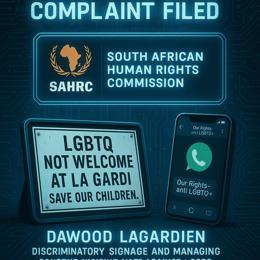Image created by AI
Crisis Unveiled: SAHRC Report Exposes Ongoing Sanitation Failures in Eastern Cape Schools
The South African Human Rights Commission (SAHRC) has issued a critical report concerning the persistent use of pit latrines in over 400 schools throughout the Eastern Cape, underscoring a significant human rights crisis. The findings detailed ongoing failures in replacing these hazardous facilities with safer, ventilated improved pit (VIP) latrines, which remain substandard and dangerous.
During a recent briefing in East London, Dr. Eileen Carter from the SAHRC condemned the Department of Basic Education's inability to meet the safety needs of children in these schools, many of which are situated in rural areas. Dr. Carter described the situation as a perpetuation of apartheid-era disparities in infrastructure, severely impacting learner dignity and safety.
Field visits conducted by the SAHRC throughout 2024 unearthed disturbing realities. Many schools replaced traditional pit toilets with VIP latrines that feature design flaws such as oversized seats and lack essential safety measures like protective handles and robust structures. This oversight continues to place children at risk, which is unacceptable and inconsistent with the Water Research Commission (WRC) 2016 safety guidelines.
The report also criticized the SAFE (Sanitation Appropriate for Education) programme, launched with the intent to eliminate dangerous toilets in schools. According to the SAHRC's findings, the program is faltering due to financial constraints, poor planning, and sluggish implementation. Tsepo Pefole, acting chief director of infrastructure, acknowledged the financial and logistical struggles, citing a significant R82 billion backlog in necessary school infrastructure.
Amid these challenges, the report includes sharp recommendations for the Department of Basic Education. There is a pressing need for all new VIP latrines to comply fully with WRC guidelines. The report demands the issuance of an urgent circular that mandates sanitation contractors to adhere strictly to these standards, under penalty of contract termination and disqualification from future projects.
Moreover, NAPTOSA's provincial chief executive, Loyiso Mbinda, expressed concerns over the department's mismanagement of funds and general irresponsibility. The educators' association is calling for greater oversight and a reassessment of budget allocations to ensure that the necessary improvements in school infrastructure are not only planned but completed effectively.
The Department of Basic Education has been given a 60-day window to respond to the SAHRC's damning findings. This response is eagerly awaited by communities who hope for rapid action and a commitment to the systematic rectification of these life-threatening issues in Eastern Cape schools.










